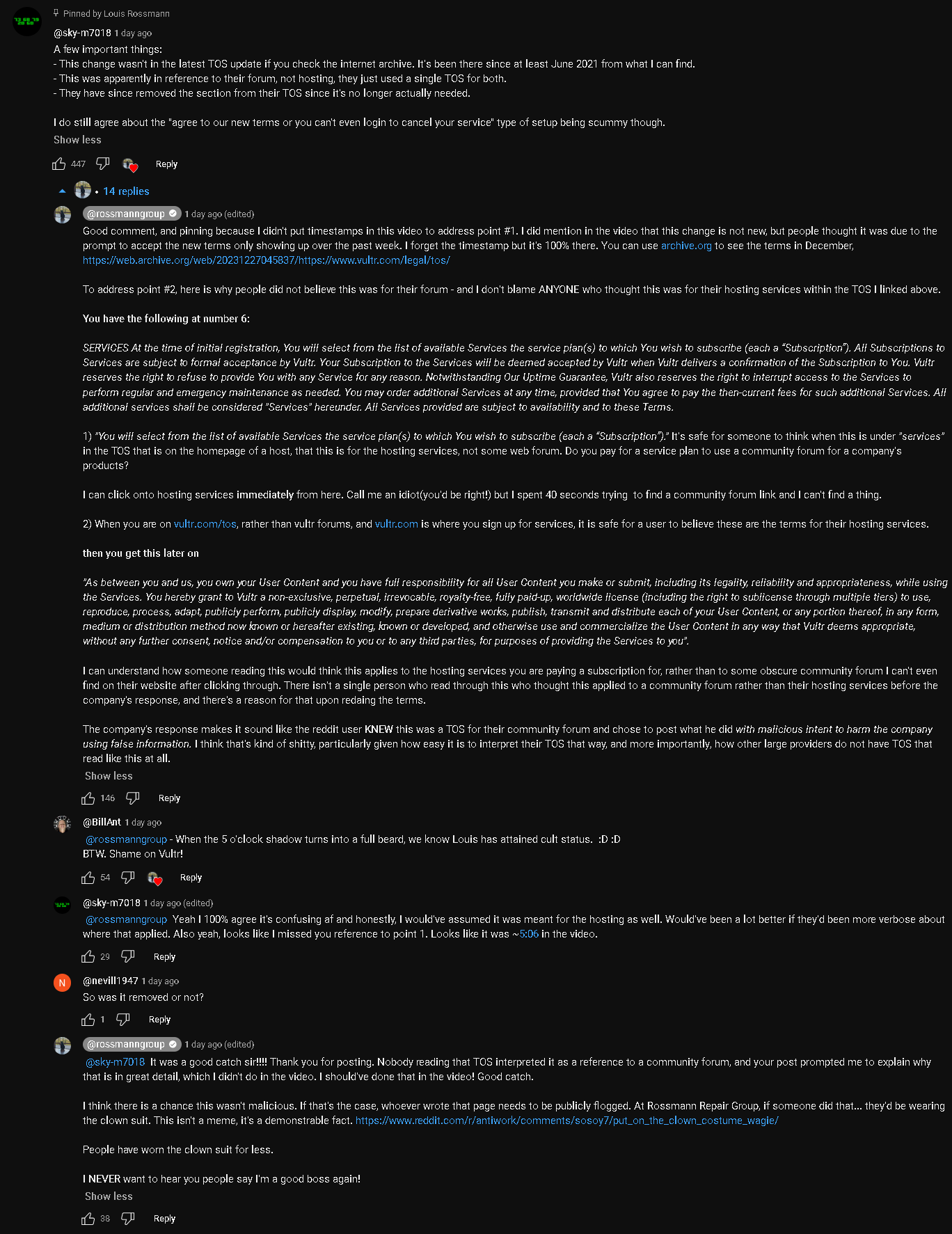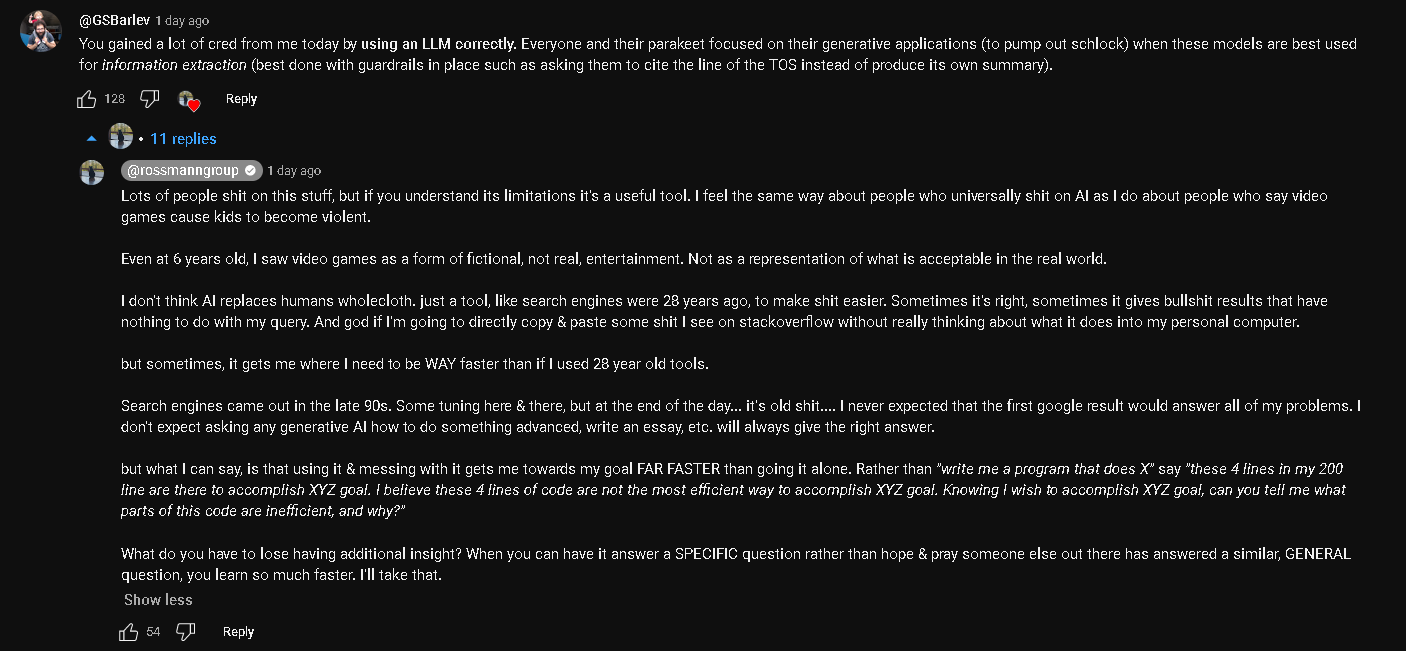Louis Rossmann
366 readers
3 users here now
Louis Rossmann Community on Lemmy.world: For fans/supporters of Louis Rossmann and his work
About Louis Rossmann
Louis Rossmann is a repair shop owner and a vocal supporter of the Right To Repair movement. He runs a YouTube channel with a variety of content - from board repair videos, to news and updates in the technology space.
His insightful and reasonable opinions on technology and product ownership tend to attract a lot of attention.
Community Guidelines
- Be nice
- Respect others' perspectives
- No advertising
- Follow the rules of the instance we're hosted on: https://mastodon.world/about
Interested in being a moderator for this community? Positions are currently open.
founded 1 year ago
MODERATORS
26
28
29
30
31
32
33
34
35
36
37
38
39
40
41
43
44
45
46
47
48
49
50

